National intangible cultural heritage master Ye Qitong is in his eighties and has the most seniority in Wuyi Mountain. He has dedicated over 60 years of his life to the tea industry, witnessing the ups and downs of modern Wuyi tea. Why has Ye Qitong become a pivotal figure bridging the past and future in the development of Wuyi rock tea? What does he consider as legacy?
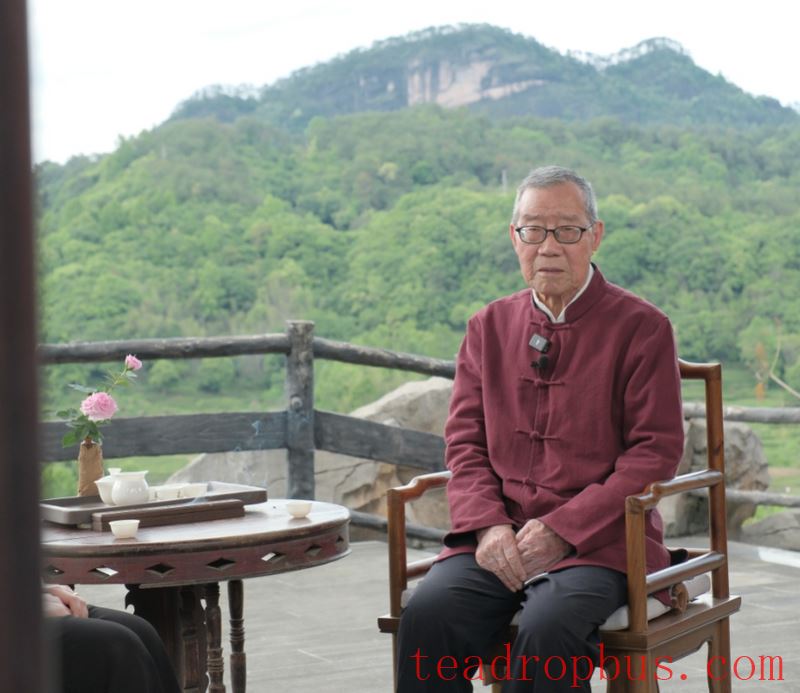
Profile: Ye Qitong
Ye Qitong, male, Han nationality, was born on November 29, 1943, in Zhouning County, Fujian Province. He has been engaged in the production, processing, and research of Wuyi rock tea for many years. In 2004 and 2006, he led the production of national quality standards samples for Wuyi rock tea, making efforts to standardize product quality. In June 2009, the Ministry of Culture granted him the title of representative inheritor of the traditional production techniques of Wuyi rock tea (Da Hongpao), a national intangible cultural heritage.
“A tea maker who can't sell tea isn't a good farm manager.”
Everything seemed predestined from the start. In 1956, Ye Qitong moved with his father, Ye Xianshun, deputy manager of Chongan Tea Farm, to Wuyi Mountain.
In the 1960s, after graduating from Jianyang Agricultural School, Ye Qitong returned to Chongan Tea Farm as an ordinary worker. From tea tree planting and garden management to participating in scientific research measuring the chemical components of rock tea, and from field management of tea production to initial processing of raw tea and quality inspection, Ye Qitong accumulated rich experience through various tea production practices.
In terms of tea making, Ye Qitong learned from his father Ye Xianshun and absorbed the experience of folk tea makers, improving and refining the techniques in practice. He summarized a complete set of traditional handcrafted skills for Wuyi rock tea, including withering, green-making, double kneading and frying, and firing.
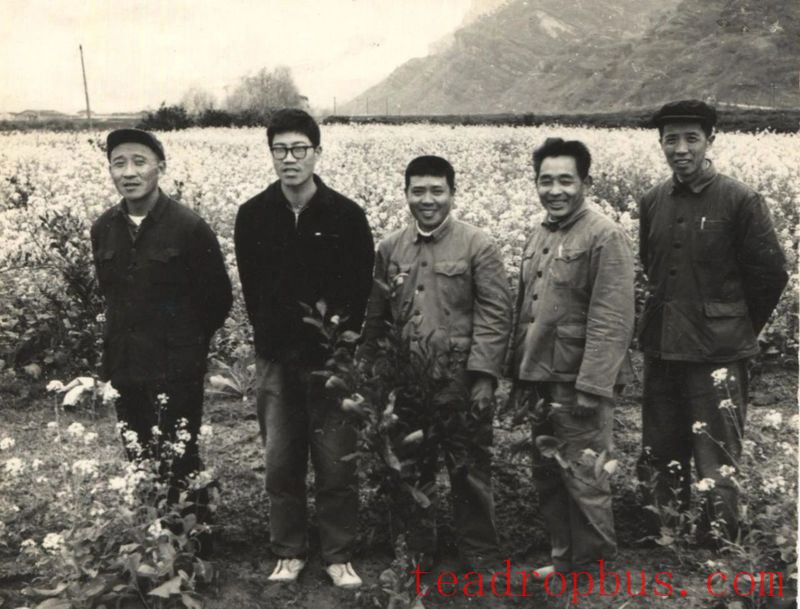
Old photo of Chongan Tea Farm: From left to right are Yao Yueming, Ye Qitong, Xu Jingchun, Zhang Peigui, and Ye Xianshun.
Location: Fourth Work Area of Chongan Tea Farm.
Starting from 1976, Ye Qitong took charge of the comprehensive technical work for refining Wuyi rock tea, drying green flower blanks, and small-leaf black tea at Chongan Tea Farm and Wujiatang Farm in Shaowu. To improve efficiency, he organized the reinstallation and layout of refined Tea processing machinery, greatly increasing the processing capacity. Apart from handling the processing tasks for rock tea, Green Tea, and small-leaf black tea in the county, he also processed scented tea for Fuzhou Tea Factory. Among the six major types of tea, Ye Qitong is proficient in the production techniques of black tea, green tea, Oolong Tea, and white tea, except for dark tea and yellow tea, which are not produced in Fujian Province.
A full ten years of effort made Ye Qitong the key figure in turning around the losses at Chongan Tea Farm. In the 1980s, the farm's annual financial statement showed a profit of more than 500,000 yuan, ranking it among the top profitable agricultural tea farms in the province. Based on his numerous innovations and contributions, Ye Qitong was appointed as the farm manager of Chongan Tea Farm starting from 1991.
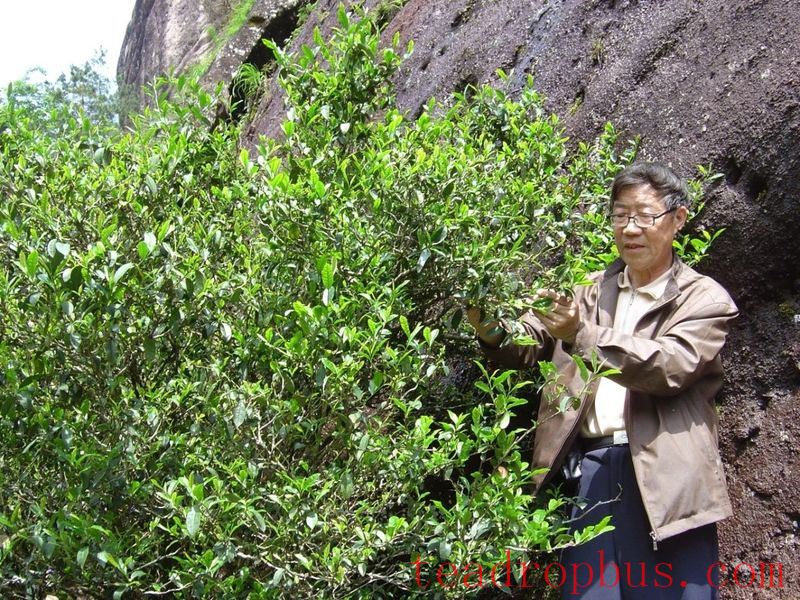
Ye Qitong inspecting tea in the mountains.
Ye Qitong's versatility is not only reflected in tea making and production management but also in his role as an excellent “salesperson.” Besides technical research, he personally traveled to sell tea, visiting places like Beijing, Shanghai, Shandong, and even reaching as far as Jinchang, Gansu.
In the 1980s and 1990s, when transportation in Gansu was underdeveloped, Ye Qitong communicated with clients via telegrams. Making a phone call in Jinchang required a trip to the post office, demonstrating the difficulty of sales work. At that time, Ye Qitong had only one thought driving him – “If we don't do it, we won't make money, and if we don't make money, the workers won't have food to eat.” In today's internet language, he embodied the saying “a tea maker who can't sell tea isn't a good farm manager” through his actions.
During their decades at the tea farm, Ye Qitong and his father not only created higher economic benefits for the farm but also secured the livelihoods of nearly 2,000 workers without ever seeking personal gain or taking a single brick or tile from the farm. When people in the Wuyi tea industry talk about them, they all praise them.
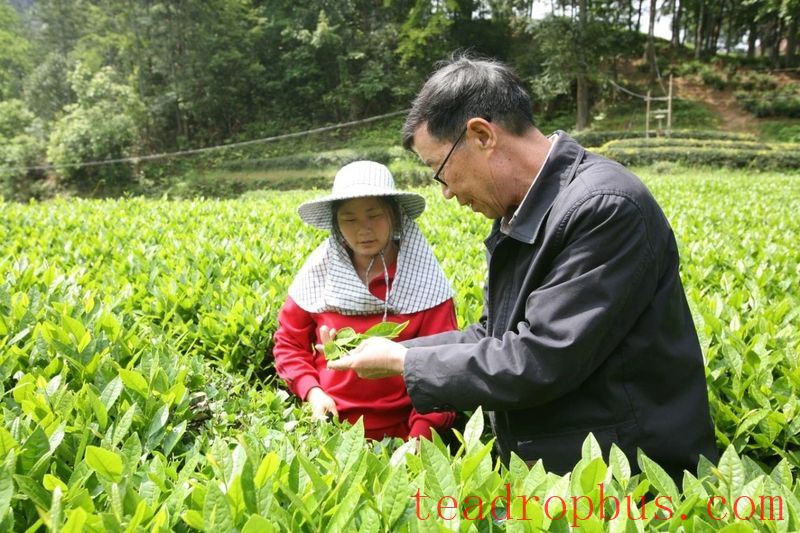
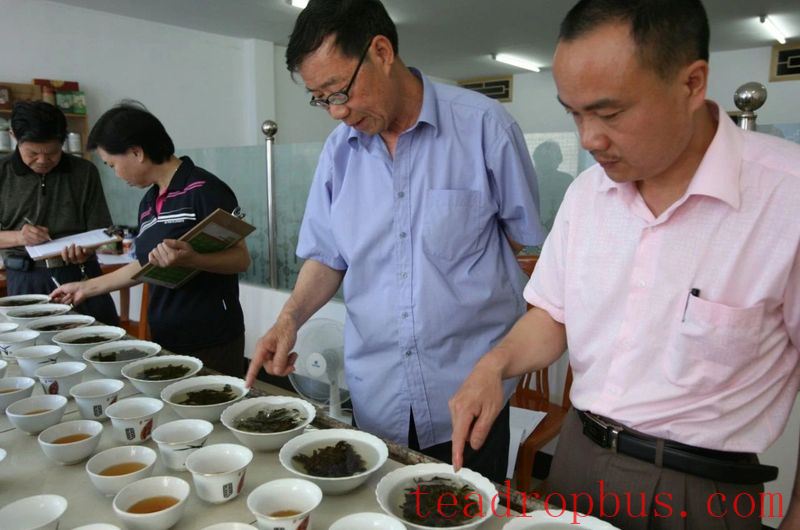
Ye Qitong guiding tea planting and conducting tea appraisal work.
To Understand Nature Is to Make the Best Tea
A skilled tea maker is a connector between nature and life. Ye Qitong says, “To understand how to communicate with nature is to make the best tea.”
“Fragrance, clarity, sweetness, and vitality,” these are the characteristics of Wuyi rock tea recorded by Liang Zhangju, describing the appearance, aroma, taste, and other aspects of the tea. Ye Qitong points out that the most abstract term, “vitality,” refers to the unique life essence of Wuyi rock tea. “An experienced tea person can tell which mountain the tea comes from and what kind of effort the tea maker put into it just by tasting it. So during the process of drinking, one must open their heart and soul, which is the highest realm of tea appreciation.”
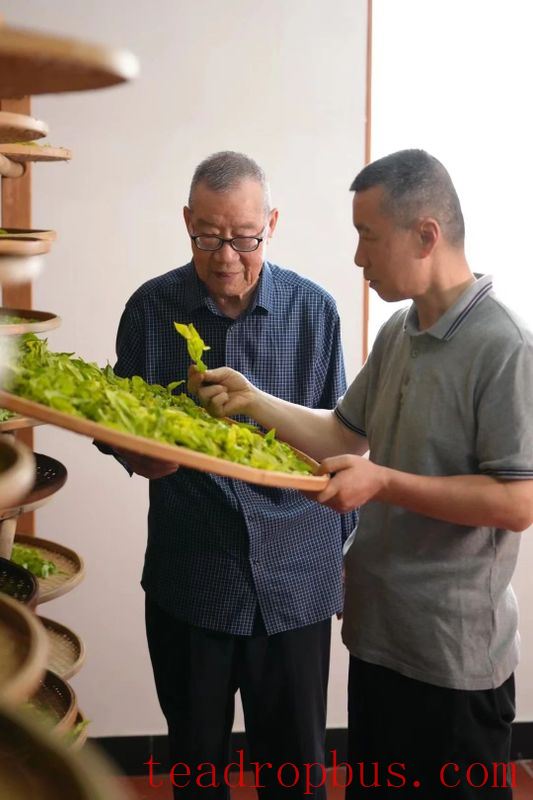
“Tea trees grow together with nature, as they grow alongside orchids, peach trees, mosses, Herbs, and bamboo, acquiring corresponding flavors. This is a very harmonious and beautiful thing, so we must cherish every plant and tree in nature and not trample on them casually. The charm of rock tea originates from this, which is part of Chinese culture.” Ye Qitong's explanation, word by word, conveys a heart that remains passionate even after many years.
In his book “Spiritual Sprouts of Famous Mountains—Wuyi Rock Tea,” Ye Qitong also discusses theoretical issues related to Wuyi rock tea, elaborating on its origins and changes, the formation of rock charm, special production techniques, and unique art of appreciation. He proposes his own interpretation of the core concept “rock charm”: on a material level, it is the breath of nature; on a spiritual level, it embodies the Chinese pursuit of harmony between heaven and humanity.
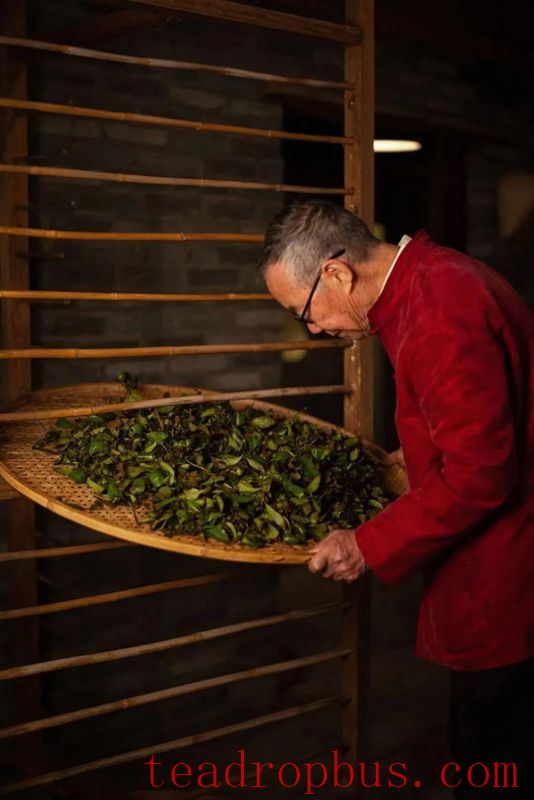
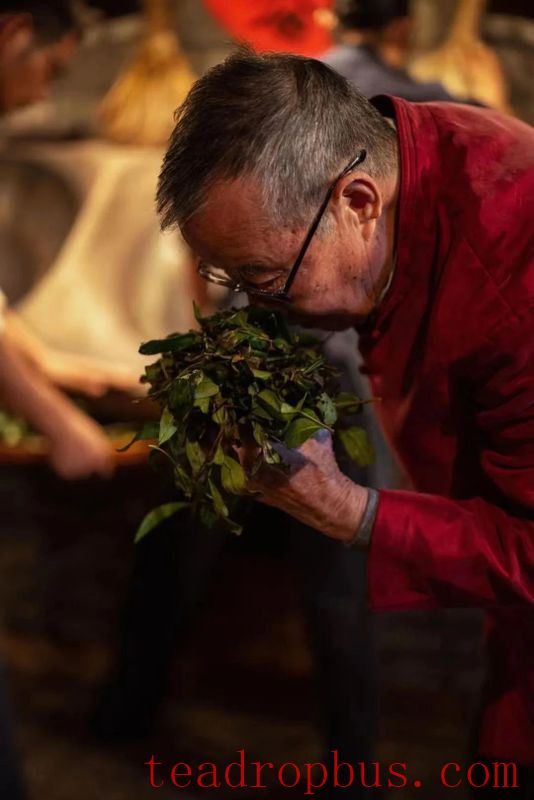
When discussing rock tea, the essence